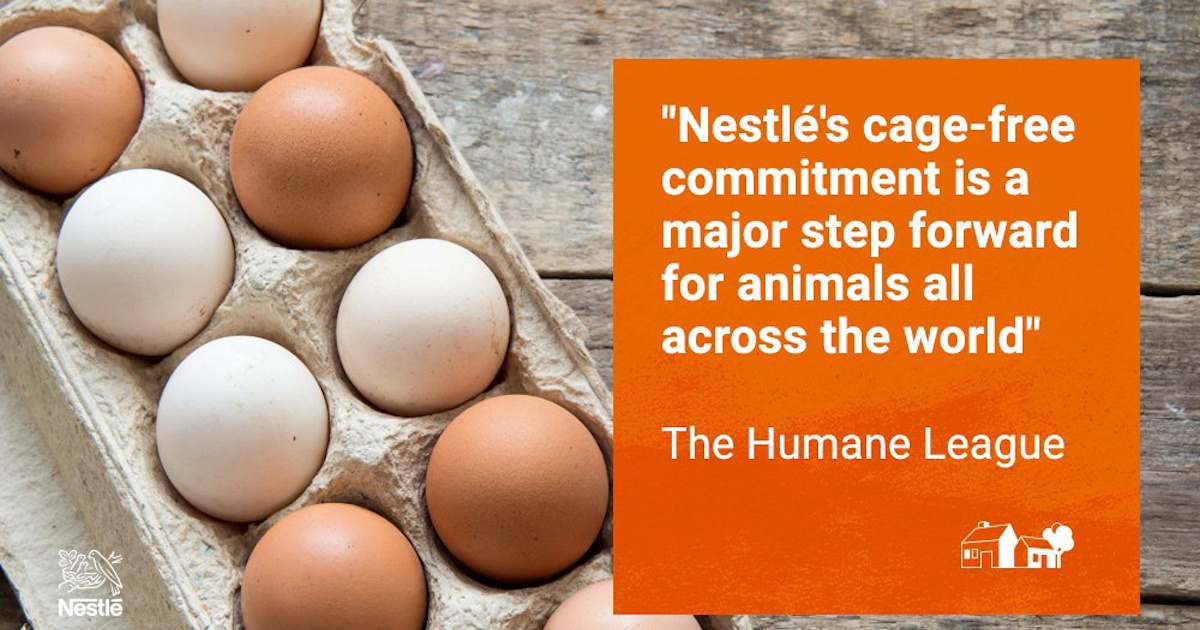
Nestlé, the World’s Largest Food Company, Switching to Cage-Free Eggs

Nestlé / Twitter
Nestlé, the biggest food company in the world, announced Thursday it will only use eggs from cage-free hens for all its food products globally by 2025—a major step in the global cage-free movement, animal rights advocates said.
The company said the transition will happen in Europe and the U.S. by the end of 2020, with the rest of the Americas, the Middle East, Africa and Oceania to follow by 2025.
“Our purpose is to enhance quality of life and contribute to a healthier future. This includes ensuring decent welfare standards for animals that are reared for the ingredients used in our products,” Nestlé said in its announcement.
“Switching to cage-free supplies worldwide requires time and investment. We will manage this in a sustainable and cost effective way during the implementation period, ensuring consumers continue to access affordable high quality foods throughout. We look forward to working with our suppliers, farmers, civil society and customers to drive progress.”
The Swiss transnational food giant sells everything from bottled water to baby food. The new cage-free policy will affect Nestlé products and brands such as Gerber, Nesquik, Butterfinger, KitKat, Wonka, Hot Pockets, Lean Cuisine, Stouffer’s, Dreyer’s and Häagen-Dazs.
A company spokesman told
Reuters that tens of millions of chickens would be positively affected by the switch.
The move was made after Nestlé’s close conversations and collaboration with members of
Open Wing Alliance, an international coalition of farm animal protection organizations launched by The Humane League in 2016.
“The Humane League commends Nestlé’s commitment to its progressive timelines for these groundbreaking animal welfare policies, which will serve as the benchmark for all other food companies worldwide,” said David Coman-Hidy, president of The Humane League. “This is a historic moment for farm animal welfare, and we believe it marks a tipping point for monumental progress in reforming the worst practices in factory farming.”
Major brands including Wyndham Worldwide, Sodexo, Walmart, Aldi, Kroger, Dunkin Donuts and Denny’s have already committed to eliminating cages from their supply chains.
The Humane League hopes that Nestlé’s commitment will spur other food companies, restaurants and grocers to take similar steps.
As EcoWatch
mentioned previously, although the label “cage-free” has its problems, the food industry’s overall shift to cage-free eggs is a big step for animal welfare. The vast majority of eggs that we see in the U.S. come from hens confined in battery cages. These hens cannot spread their wings, they cannot walk around or express other normal hen behaviors. They may never see the light of day.
The Humane League is hoping to eliminate the use of cages around the world and is pressuring global companies to end the practice, Coman-Hidy told EcoWatch last year.

 233k
233k  41k
41k  Subscribe
Subscribe 